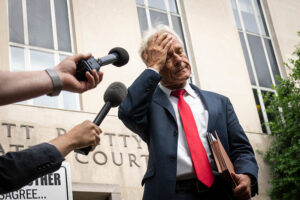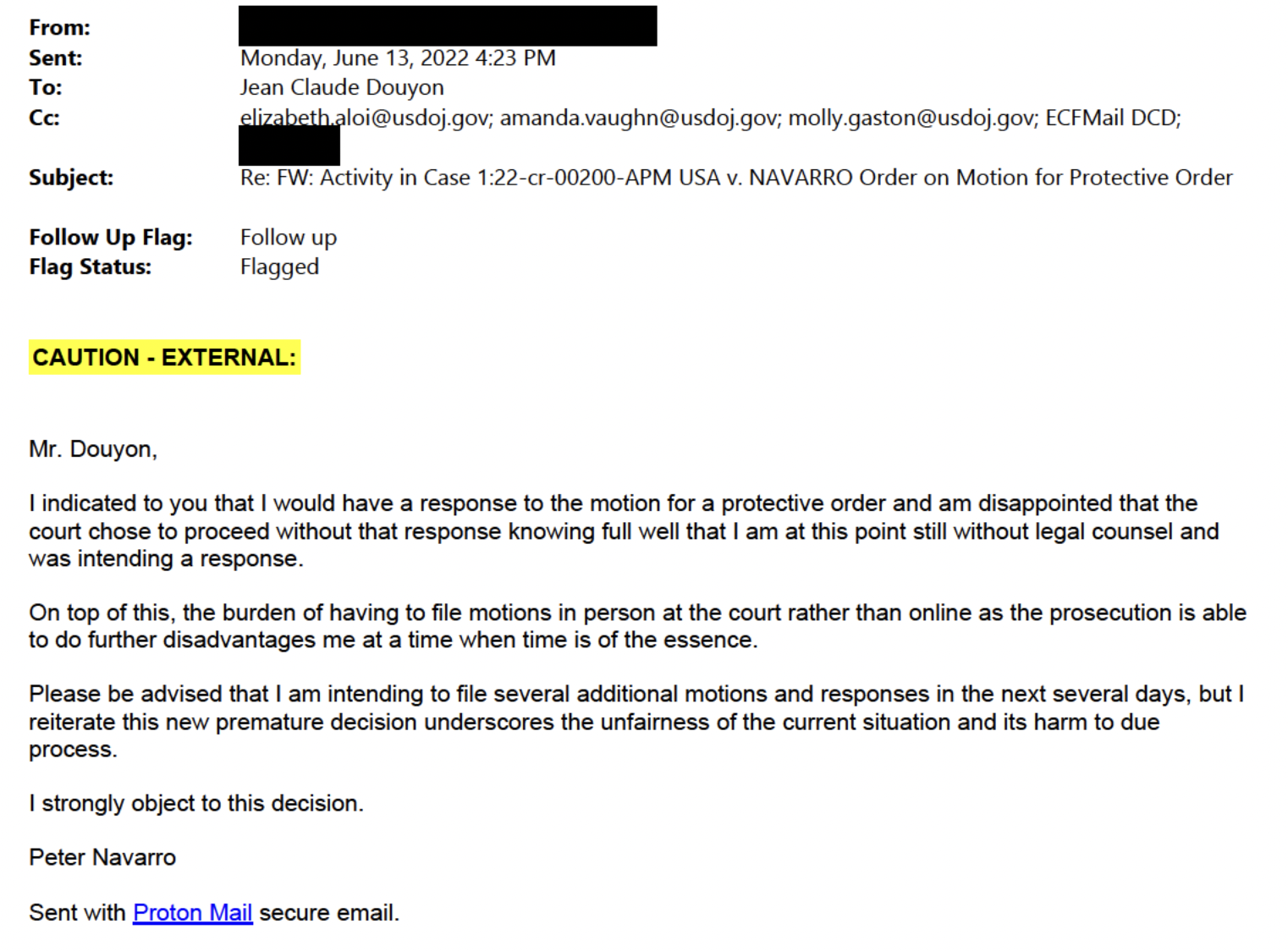
(Photo by Drew Angerer/Getty Images)
Peter Navarro, Donald Trump’s erstwhile econ loon, has worn more costumes than a Barbie doll. He’s been an epidemiologist, an immunologist, a statistician, and an expert on the electoral college.
And now he’s a lawyer! Kind of.

How LexisNexis CourtLink And Lexis Snapshot Deliver Business Wins
These tools demonstrate that information is power.
Navarro’s efforts to lawsplain executive privilege to the January 6 Select Committee went just as well as his pro se lawsuit against Nancy Pelosi and the DOJ to stop a grand jury subpoena for his testimony. Which is to say that they landed the economist an indictment on two counts of contempt of Congress for refusing to testify about his plot with Steve Bannon to overturn Biden’s electoral win — a topic he described in detail in his book and has not shut up about for months.
Navarro was arrested on Friday June 3, after which he launched himself at various microphones to complain that he’d been denied food and water by the FBI, restrained with leg irons and placed in solitary confinement, and deprived of his right to counsel.
That last one is most confusing, since Navarro claimed at his initial appearance before US Magistrate Judge Zia Faruqui that he would likely represent himself pro se because “I don’t want to spend my retirement savings on lawyers.” He then turned around and claimed to have “provided Deputy Attorney Patricia Aloi two days prior to the arrest with the name of an attorney to call to negotiate with.” Then he accused the government of “tak[ing] advantage of an individual without adequate representation” when the mysterious lawyer failed to materialize.
As of yesterday, he was still signing his filings “Peter Navarro, Pro se actively seeking counsel,” which somewhat undercuts his claim that he’s had an attorney waiting in the wings for two weeks now.

How MyCase Accounting Transforms Legal Bookkeeping
This complete system built for lawyers simplifies the complex world of law firm finance.
But that is hardly the most bizarre thing about this case. Navarro’s effort to represent himself by emailing pissy messages to the courtroom deputy has already earned him an admonition from US District Judge Amit Mehta to quit making ex parte communications and file in the appropriate way.
If Defendant wishes to communicate with the court, he shall do so through a written filing submitted through the clerk’s office. Alternatively, he can seek permission to obtain filing privileges for the court’s online filing system. Securing such privileges will require Defendant to follow Local Criminal Rule 49(b)(2). The District Court’s Local Rules are available on its website. The court assumes that Defendant was unaware of the prohibition on ex parte communications and trusts that they will cease going forward.
It ain’t rocket science. And yet Navarro is still emailing Judge Mehta’s deputy, although he’s managing to CC prosecutors now.
In response to prosecutors’ motion for a protective order so they can disclose grand jury testimony without it winding up on Tucker Carlson’s show, Navarro filed a furious demand for “documents pertaining to arrest,” insisting among other things that the FBI had never appropriately Mirandized him because they did not read them off a “written sheet of paper,” but instead “deliver[ed] the notice in a casual and improvisational manner, perhaps designed to lull the defendant into complaceny [sic].”
Navarro ignored the protective order entirely, and only briefly alluded to his original demand that the government be ordered to quit filing documents for 45 days to allow him to retain counsel and/or learn the rules of procedure.
“The court cannot discern whether Defendant intends this to be an actual motion or a Rule 16(a)(1) discovery demand directed to the government. Out of an abundance of caution, the court treats the filing as a motion and will docket it accordingly,” Judge Mehta wrote.
Prosecutors responded that they would certainly comply with Brady requirements, but since no one asked Navarro anything when he was in custody, it’s irrelevant whether the FBI agents sang the Miranda warning in three-part harmony while juggling puppies or read them off a card like the cops on Detective Show Law School.
Yesterday Judge Mehta signed the protective order, denied Navarro’s request for a postponement of his arraignment, and refused to grant his many interesting discovery requests.
“As detailed in the government’s motion, in the short time since his arrest and initial appearance in court, Defendant has made multiple, detailed statements to the media,” the court noted, adding later that “Defendant is, of course, entitled to a fair and impartial process. But he is not entitled to seed a potential jury pool with the evidence that might be presented in his case.”
“As for the request to bar the government from filing further motions,” the court wrote, “Defendant offers no valid basis for such an extraordinary order.”
And then this happened.
“I indicated to you that I would have a response to the motion for a protective order and am disappointed that the court chose to proceed without that response knowing full well that I am at this point still without legal counsel and was intending a response,” groused Navarro, apparently laboring under the delusion that Judge Mehta is a junior colleague in need of firm correction.
He then went on to complain about the grievous injustice of having to file motions “in person at the court rather than online as the prosecution is able to do.”
Navarro promised “several additional motions and responses in the next several days,” before going on to scold the court for having the temerity to rule on motions before it.
“I reiterate this new premature decision underscores the unfairness of the current situation and its harms to due process,” he railed, before concluding that he “strongly” objects to the ruling.
Well … Friday morning’s 10am hearing will be on a public access line at (877) 848-7030, access code 321-8747. You know, just in case you’re down to start your weekend with something really crazy.
US v. Navarro [Docket via Court Listener]
Liz Dye lives in Baltimore where she writes about law and politics.